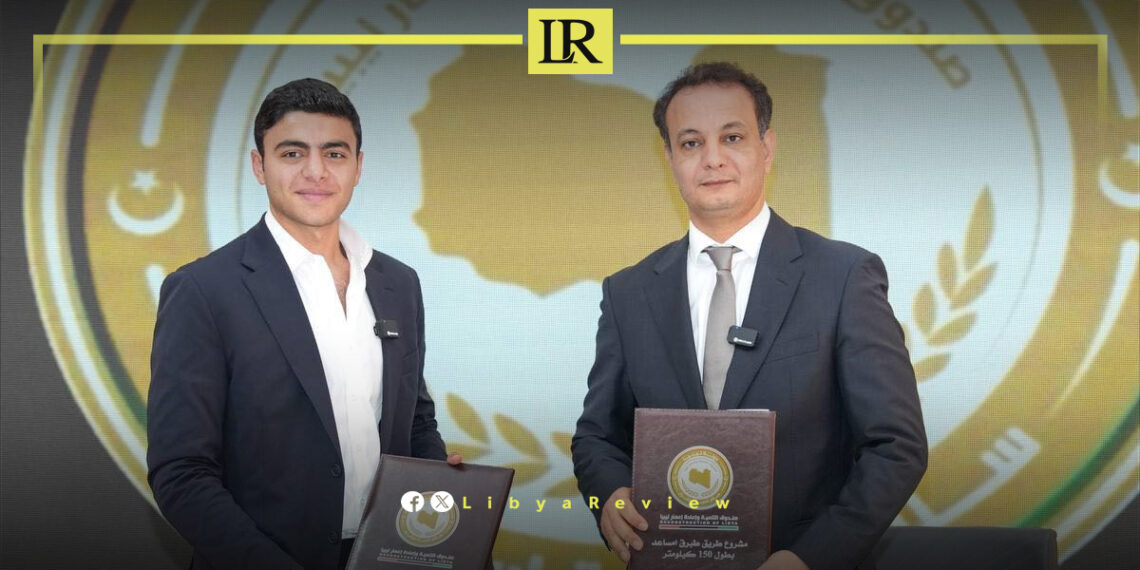On Sunday, the Libya Reconstruction and Development Fund signed new contracts with Egyptian companies NEOM and Wadi Al-Nil to launch key infrastructure projects across the country.
Eng. Belgasem Haftar, the Fund’s General Manager, announced the deals as part of a strategic effort to modernize Libya’s infrastructure, strengthen regional cooperation, and support the country’s long-term development.
Among the most significant projects are the construction of the Tobruk–Emsaed International Road, the completion of the Corniche in Derna, and the expansion of Aqabet Al-Bakur in Benghazi. These projects are designed to improve transportation networks, enhance public spaces, and address urgent urban planning challenges in key Libyan cities.
The Tobruk–Emsaed International Road will play a vital role in improving connectivity between Libya and Egypt, facilitating cross-border trade and fostering economic ties between the two nations. As a crucial route for the movement of goods and travelers, the project will also support regional commerce and help position Libya as a key transit hub in North Africa.
In Derna, the completion of the Corniche reflects a renewed focus on urban renewal and public infrastructure following years of challenges. The project is expected to improve the quality of life for residents while attracting investment and tourism to the coastal city. Meanwhile, the expansion of Aqabet Al-Bakur in Benghazi aims to alleviate traffic congestion and improve road safety. This project is critical to supporting Benghazi’s rapid urban growth and ensuring the city’s transport infrastructure can meet increasing demand.
These infrastructure initiatives are part of a broader strategy to support Libya’s recovery from years of conflict and instability. The Reconstruction and Development Fund is working to restore essential services, upgrade urban infrastructure, and promote stability throughout the country. The cooperation with NEOM and Wadi Al-Nil demonstrates the growing collaboration between Libya and Egypt, as both nations seek to leverage regional synergies to unlock new economic opportunities.
Libya’s reconstruction efforts are crucial not only for domestic stability but also for reshaping the country’s role in regional trade and investment. The emphasis on developing transport infrastructure, public spaces, and urban planning reflects an effort to diversify Libya’s economy beyond oil. These improvements will help attract foreign investment, stimulate local business, and create employment opportunities, driving sustainable economic growth.


